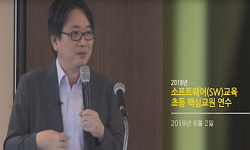The classroom engagement and achievement emotions of elementary school students are closely related to the learning process employed and the degree of achievement reached. If teachers are able to accurately judge their students’ engagement and emoti...
http://chineseinput.net/에서 pinyin(병음)방식으로 중국어를 변환할 수 있습니다.
변환된 중국어를 복사하여 사용하시면 됩니다.
- 中文 을 입력하시려면 zhongwen을 입력하시고 space를누르시면됩니다.
- 北京 을 입력하시려면 beijing을 입력하시고 space를 누르시면 됩니다.

초등학생의 수업 참여와 성취 정서에 대한 교사 판단의 정확성 = The Accuracy of the Teachers' Judgments of Elementary School Students' Classroom Engagement and Achievement Emotions
한글로보기https://www.riss.kr/link?id=A106592770
- 저자
- 발행기관
- 학술지명
- 권호사항
-
발행연도
2020
-
작성언어
Korean
- 주제어
-
등재정보
KCI등재
-
자료형태
학술저널
- 발행기관 URL
-
수록면
113-135(23쪽)
-
KCI 피인용횟수
3
- DOI식별코드
- 제공처
-
0
상세조회 -
0
다운로드
부가정보
다국어 초록 (Multilingual Abstract)
The classroom engagement and achievement emotions of elementary school students are closely related to the learning process employed and the degree of achievement reached. If teachers are able to accurately judge their students’ engagement and emotions during class, they can give timely feedback during the class and determine the appropriate content level and the optimal teaching approach for future classes. Therefore, the accurate monitoring and assessment of students’ classroom engagement and achievement emotions are crucial for teachers. In this study, we examined how accurately teachers were able to judge their students’ classroom engagement and achievement emotions. To do so, we collected data from 18 elementary school teachers and 379 students. The results showed that the teachers’ judgments of their students’ classroom engagement and achievement emotions were more strongly influenced by the students’ academic achievement than were the students’ self-reported classroom engagement and achievement emotions. However, the teachers’ judgments had a significant relationship with the corresponding student self-reports, even when controlling for the effects of academic achievement. It is worth noting that the accuracy of the teachers’ judgments of the students’ emotional status was significantly moderated by class size and whether the teacher was a homeroom or subject teacher. Overall, the results suggest that teachers are able to accurately judge their students’ classroom engagement and achievement emotions. The results also indicate that the accuracy of teacher judgments can be influenced by factors related to the quality of teacher-student interactions.
국문 초록 (Abstract)
학생들의 수업 참여와 성취 정서는 그들의 학습 과정과 성취를 설명하는 중요한 지표이다. 교사들은 수업 상황에서 학생들이 보이는 참여와 정서를 파악함으로써 수업 중 어떠한 도움을 줄 ...
학생들의 수업 참여와 성취 정서는 그들의 학습 과정과 성취를 설명하는 중요한 지표이다. 교사들은 수업 상황에서 학생들이 보이는 참여와 정서를 파악함으로써 수업 중 어떠한 도움을 줄 수 있는지, 나아가 차후에 어떠한 수업 내용과 방법이 더 적합한지를 판단할 수 있다. 그렇기 때문에 학생들의 수업 참여와 성취 정서를 정확히 파악하는 것은 교사에게 있어 매우 중요한 과제가 된다. 본 연구에서는 초등학교 교사 18명과 학생 379명의 응답을 통해 학생들의 참여 및 즐거움·불안·지루함과 같은 성취 정서에 대한 교사 판단의 정확성을 살펴보았다. 연구 결과, 수업 참여와 성취 정서에 대한 학생 자신의 응답에 비해 이에 대한 교사 판단이 학생들의 학업 성취도에 상대적으로 더 영향을 받음을 알 수 있었다. 또, 학업 성취도의 영향력을 통제한 상태에서도 수업 참여와 성취 정서에 대한 학생 응답과 이에 대한 교사 판단은 유의미한 관련성을 나타냈다. 주목할 만한 부분은 학급 당 학생 수가 많아질수록 학생들의 정서적 참여에 대해 교사들이 정확히 파악하지 못하는 모습을 보였다는 점이다. 또 성취 정서 중 지루함의 평정에 있어 담임교사에 비해 교과전담교사들이 더 낮은 정확성을 나타냈다. 본 연구 결과는 초등학생의 수업 참여 및 성취 정서에 대한 교사 판단이 어느 정도 타당함을 의미한다. 하지만 교사와 학생 간의 관계성 등 상호작용에 영향을 미치는 변인들이 이러한 판단의 정확성에 영향을 줄 수 있음 역시 시사한다.
참고문헌 (Reference)
1 조한익, "초등학생의 정서, 성취정서 및 학업성취도의 구조적 관계 분석" 한국초등교육학회 26 (26): 229-250, 2013
2 이동성, "초등학교 기초학습부진학생지도 경험에 대한 자문화기술지" 한국교육인류학회 13 (13): 141-168, 2010
3 최규홍, "초등학교 국어과 평가 정책의 특징과 방향" 국어교육학회 (36) : 135-159, 2009
4 권기욱, "유초중등학교 학생 교육성취 제고를 위한 학급규모 감축전략" 한국교육방법학회 15 (15): 23-55, 2003
5 황윤자, "웹기반 기초학력 진단-보정학습 시스템의 사용자 친화적인 개선 프로토타입 개발" 한국컴퓨터교육학회 22 (22): 63-78, 2019
6 곽지은, "웹 기반 심리 평가의 타당화" 한국인지및생물심리학회 20 (20): 321-337, 2008
7 박성열, "온라인 기초학력 진단-보정 시스템에 대한 교사의 성별, 사용경험, 학교유형이 사용의도 관련 변인에 미치는 영향" 교육발전연구소 28 (28): 263-286, 2018
8 박서연, "성취정서의 국내외 연구동향" 한국교육심리학회 31 (31): 35-58, 2017
9 김영숙, "성취정서와 학업성취도의 관계에 관한 메타분석" 한국교육심리학회 29 (29): 85-111, 2015
10 윤혜경, "과학 수업 비디오에 기초한 반성 활동을 통한 초등 예비교사의 전문적 시각의 변화" 한국과학교육학회 37 (37): 553-564, 2017
1 조한익, "초등학생의 정서, 성취정서 및 학업성취도의 구조적 관계 분석" 한국초등교육학회 26 (26): 229-250, 2013
2 이동성, "초등학교 기초학습부진학생지도 경험에 대한 자문화기술지" 한국교육인류학회 13 (13): 141-168, 2010
3 최규홍, "초등학교 국어과 평가 정책의 특징과 방향" 국어교육학회 (36) : 135-159, 2009
4 권기욱, "유초중등학교 학생 교육성취 제고를 위한 학급규모 감축전략" 한국교육방법학회 15 (15): 23-55, 2003
5 황윤자, "웹기반 기초학력 진단-보정학습 시스템의 사용자 친화적인 개선 프로토타입 개발" 한국컴퓨터교육학회 22 (22): 63-78, 2019
6 곽지은, "웹 기반 심리 평가의 타당화" 한국인지및생물심리학회 20 (20): 321-337, 2008
7 박성열, "온라인 기초학력 진단-보정 시스템에 대한 교사의 성별, 사용경험, 학교유형이 사용의도 관련 변인에 미치는 영향" 교육발전연구소 28 (28): 263-286, 2018
8 박서연, "성취정서의 국내외 연구동향" 한국교육심리학회 31 (31): 35-58, 2017
9 김영숙, "성취정서와 학업성취도의 관계에 관한 메타분석" 한국교육심리학회 29 (29): 85-111, 2015
10 윤혜경, "과학 수업 비디오에 기초한 반성 활동을 통한 초등 예비교사의 전문적 시각의 변화" 한국과학교육학회 37 (37): 553-564, 2017
11 임종헌, "‘과정 중심 평가’의 특징과 의미에 관한 연구: 자유학기제 ‘과정 중심 평가’를 중심으로" 한국교육개발원 45 (45): 31-59, 2018
12 Boehnke, K., "What I think and feel? : German experience with the revised form of the children's manifest anxiety scale" 7 (7): 553-560, 1986
13 Lee, V. E., "Using hierarchical linear modeling to study social contexts : The case of school effects" 35 (35): 125-141, 2000
14 Gibson, N. M., "Treatment of missing data at the second level of hierarchical linear models" 63 (63): 204-238, 2003
15 Grice, J., "The Dynamic Analog Scale : A generic method for single-item measurement" 50 (50): 481-485, 2011
16 Lee, W., "Testing interest and self-efficacy as predictors of academic self-regulation and achievement" 39 : 86-99, 2014
17 Lee, W., "Teachers’ estimates of their students’ motivation and engagement : Being in synch with students" 32 (32): 727-747, 2012
18 Meissel, K., "Subjectivity of teacher judgments : Exploring student characteristics that influence teacher judgments of student ability" 65 : 48-60, 2017
19 Linnenbrink-Garcia, L., "Students’ emotions and academic engagement : Introduction to the special issue" 36 (36): 1-3, 2011
20 Reeve, J., "Students’ classroom engagement produces longitudinal changes in classroom motivation" 106 : 527-540, 2014
21 Appleton, J. J., "Student engagement with school : Critical conceptual and methodological issues of the construct" 45 : 369-386, 2008
22 Hancock, G. R., "Structural equation modeling : A second course" Information Age Publishing 2006
23 Neugebauer, S., "Stable or situated understandings of adolescent reading engagement across readers and raters" 109 (109): 391-404, 2016
24 Furrer, C., "Sense of relatedness as a factor in children's academic engagement and performance" 95 (95): 148-, 2003
25 Fredricks, J. A., "School engagement : Potential of the concept, state of the evidence" 74 (74): 59-109, 2004
26 Clark, C. M., "Research on teacher thinking" 7 (7): 279-304, 1977
27 Lichtenfeld, S., "Measuring students' emotions in the early years : The Achievement Emotions Questionnaire-Elementary School(AEQ-ES)" 22 : 190-201, 2012
28 Mangunkusumo, R. T., "Internet versus paper mode of health and health behavior questionnaires in elementary schools : asthma and fruit as examples" 76 (76): 80-86, 2006
29 Englehart, J. M., "International Handbook of Research on Teachers and Teaching: Part One" Springer 711-721, 2009
30 Givvin, K. B., "In the eyes of the beholder : Students’ and teachers’ judgments of students’ motivation" 17 (17): 321-331, 2001
31 Lepper, M., "Improving academic achievement: impact of psychological factors on education" Academic Press 135-158, 2002
32 Karing, C., "How accurate are teacher and parent judgements of lower secondary school children’s test anxiety?" 35 (35): 909-925, 2015
33 Raudenbush, S. W., "Hierarchical linear and nonlinear modeling(HLM7)" Scientific Software International 2011
34 Fredricks, J. A., "Handbook of research on student engagement" Springer 763-782, 2012
35 Finn, J. D., "Handbook of research on student engagement" Springer 97-132, 2012
36 Skinner, E. A., "Handbook of research on student engagement" Springer 21-44, 2012
37 Christenson, S. L., "Handbook of research on student engagement" Springer 2012
38 Pekrun, R., "Handbook of research on student engagement" Springer 259-282, 2012
39 Doyle, W., "Handbook of classroom management: research, practice, and contemporary issues" Routledge 107-136, 2013
40 Westerman, D. A., "Expert and novice teacher decision making" 42 (42): 292-305, 1991
41 Schutz, P. A., "Emotion in education" Academic 2007
42 Christ, T. J., "Direct Behavior Rating : An Evaluation of Alternate Definitions to Assess Classroom Behaviors" 40 (40): 181-199, 2011
43 Graesser, A. C., "Detection of emotions during learning with AutoTutor" 285-290, 2006
44 McConatha, J. T., "Culture, age, and gender as variables in the expression of emotions" 9 (9): 481-488, 1994
45 Hoeppner, B. B., "Comparative utility of a single-item versus multiple-item measure of self-efficacy in predicting relapse among young adults" 41 (41): 305-312, 2011
46 Pekrun, R., "Beyond test anxiety: Development and validation of the Test Emotions Questionnaire (TEQ)" 17 : 287-316, 2004
47 Zhu, M., "Assessing teachers’ judgements of students’ academic motivation and emotions across two rating methods" 20 (20): 411-427, 2014
48 Reeve, J., "Agency as a fourth aspect of students’ engagement during learning activities" 36 (36): 257-267, 2011
49 Roorda, D. L., "Affective teacher-student relationships and students' engagement and achievement : A meta-analytic update and test of the mediating role of engagement" 46 (46): 239-261, 2017
50 Kaiser, J., "Achievement and engagement : How student characteristics influence teacher judgments" 28 : 73-84, 2013
51 Pekrun, R., "Achievement Emotions Questionnaire-Elementary School (AEQ- Elementary School): User's Manual" University of Munich, Department of Psychology 2007
52 Urhahne, D., "Accuracy of teachers' judgments of students' subjective well-being" 43 : 226-232, 2015
53 Machts, N., "Accuracy of teachers' judgments of students' cognitive abilities : A meta-analysis" 19 : 85-103, 2016
54 Barrick, M. R., "Accuracy of interviewer judgments of job applicant personality traits" 53 (53): 925-951, 2000
55 Pekrun, R., "Academic emotions in students’ self-regulated learning and achievement : A program of quantitative and qualitative research" 37 : 91-106, 2002
56 Skinner, E. A., "A motivational perspective on engagement and disaffection : Conceptualization and assessment of children's behavioral and emotional participation in academic activities in the classroom" 69 (69): 493-525, 2009
동일학술지(권/호) 다른 논문
-
프로젝트 기반 협력학습이 의대생의 자기조절 학습능력개발에 미친 효과
- 한국교육방법학회
- 시지현
- 2020
- KCI등재
-
학습지원 프로그램에 참여한 학업적응취약계층 대학생의 대학생활적응력 수준 변화 연구
- 한국교육방법학회
- 안현선
- 2020
- KCI등재
-
- 한국교육방법학회
- 윤가영
- 2020
- KCI등재
-
- 한국교육방법학회
- 김은정
- 2020
- KCI등재
분석정보
인용정보 인용지수 설명보기
학술지 이력
| 연월일 | 이력구분 | 이력상세 | 등재구분 |
|---|---|---|---|
| 2026 | 평가예정 | 재인증평가 신청대상 (재인증) | |
| 2020-01-01 | 평가 | 등재학술지 유지 (재인증) |  |
| 2017-01-01 | 평가 | 등재학술지 유지 (계속평가) |  |
| 2013-01-01 | 평가 | 등재 1차 FAIL (등재유지) |  |
| 2010-01-01 | 평가 | 등재학술지 유지 (등재유지) |  |
| 2007-01-01 | 평가 | 등재학술지 선정 (등재후보2차) |  |
| 2006-01-01 | 평가 | 등재후보 1차 PASS (등재후보1차) |  |
| 2005-06-17 | 학술지등록 | 한글명 : 교육방법연구외국어명 : The Korean Journal of Educational Methodology Studies |  |
| 2004-01-01 | 평가 | 등재후보학술지 선정 (신규평가) |  |
학술지 인용정보
| 기준연도 | WOS-KCI 통합IF(2년) | KCIF(2년) | KCIF(3년) |
|---|---|---|---|
| 2016 | 1.94 | 1.94 | 2.08 |
| KCIF(4년) | KCIF(5년) | 중심성지수(3년) | 즉시성지수 |
| 2.23 | 2.35 | 2.393 | 0.91 |





 KCI
KCI 스콜라
스콜라






